
Find Help
More Items From Ergsy search
-

What is the Ebola virus?
Relevance: 100%
-

Is the Marburg virus related to the Ebola virus?
Relevance: 97%
-

What is the Marburg Virus?
Relevance: 51%
-

Is there a vaccine for Marburg virus?
Relevance: 48%
-

How is the Marburg virus transmitted?
Relevance: 48%
-

What is the mortality rate of Marburg virus disease?
Relevance: 48%
-

Are there any countries at higher risk for Marburg virus outbreaks?
Relevance: 47%
-

Can Marburg virus disease recur after recovery?
Relevance: 46%
-

Has Marburg virus caused any major outbreaks?
Relevance: 45%
-

Where was the Marburg virus first discovered?
Relevance: 43%
-

How long is the incubation period for the Marburg virus?
Relevance: 42%
-

What measures are being taken to control Marburg virus outbreaks?
Relevance: 40%
-

How do health authorities confirm a Marburg virus outbreak?
Relevance: 40%
-

What research is being done on the Marburg virus?
Relevance: 39%
-

Can Marburg virus disease be prevented?
Relevance: 38%
-

What other viruses are tested for in blood donations?
Relevance: 38%
-

What are the symptoms of Marburg virus disease?
Relevance: 37%
-

What is the typical progression of Marburg virus disease?
Relevance: 37%
-

How is Marburg virus disease diagnosed?
Relevance: 35%
-

How can healthcare workers protect themselves from Marburg virus infection?
Relevance: 34%
-

Is there a cure for Nipah Virus?
Relevance: 34%
-

What is Nipah Virus?
Relevance: 34%
-

Is there a vaccine for the Zika virus?
Relevance: 33%
-
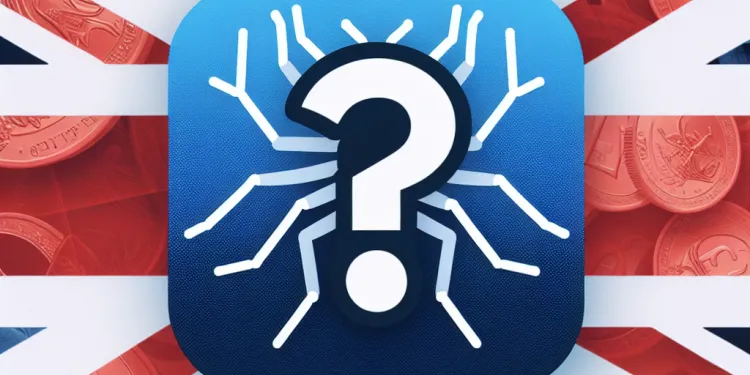
Is Zika virus present in the UK?
Relevance: 33%
-

What is West Nile Virus?
Relevance: 33%
-
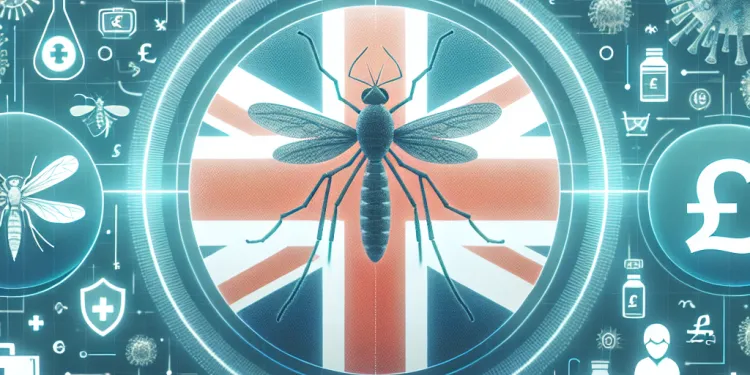
How is the Zika virus transmitted?
Relevance: 33%
-

How is Nipah Virus diagnosed?
Relevance: 33%
-

How is Nipah Virus transmitted?
Relevance: 32%
-

Does the UK have Zika virus?
Relevance: 32%
-

What is West Nile Virus?
Relevance: 32%
-

Is there a vaccine for West Nile Virus?
Relevance: 32%
-

Is there a test for West Nile Virus?
Relevance: 32%
-

How is Chikungunya virus transmitted?
Relevance: 32%
-

What are the symptoms of Zika virus?
Relevance: 32%
-
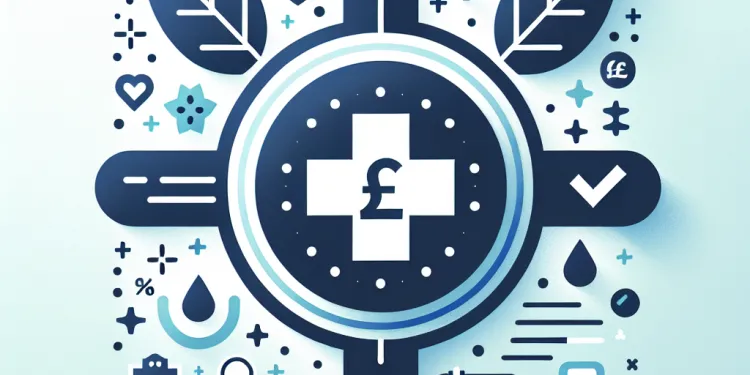
Are there treatments for West Nile Virus?
Relevance: 32%
-

Can Nipah Virus cause outbreaks?
Relevance: 31%
-

Where was Nipah Virus first identified?
Relevance: 31%
-
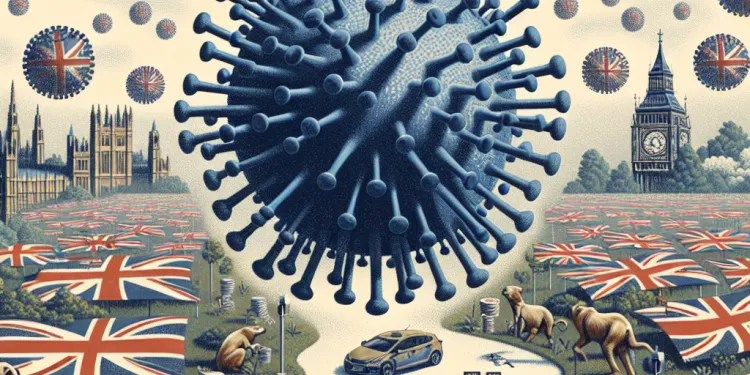
How is West Nile Virus transmitted?
Relevance: 31%
-
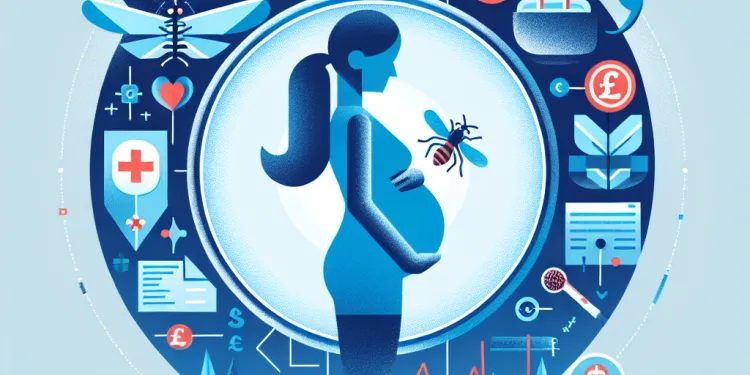
Can Zika virus affect pregnancy?
Relevance: 31%
-

How prevalent is West Nile virus in the UK?
Relevance: 31%
What is the Ebola Virus?
The Ebola virus is a severe and often fatal illness in humans, caused by infection with one of the Ebola virus species. The virus is part of the Filoviridae family and consists of several distinct species, with some being more harmful to humans than others. It was first discovered in 1976 near the Ebola River in what is now the Democratic Republic of Congo, and periodic outbreaks have occurred since then, primarily in Africa.
Transmission
Ebola is a zoonotic virus, meaning it is transmitted to humans from animals. Fruit bats are considered natural hosts of the Ebola virus, but it can also be transmitted to humans through close contact with the blood, secretions, organs, or other bodily fluids of infected animals such as chimpanzees, gorillas, monkeys, forest antelope, and porcupines.
Human-to-human transmission occurs through direct contact with blood or body fluids of a person who is sick with or has died from Ebola. It can also spread through contaminated surfaces and materials like bedding and clothing.
Symptoms
Symptoms of Ebola typically appear between 2 and 21 days after exposure to the virus, with an average of 8 to 10 days. Initial symptoms can be nonspecific, including fever, fatigue, muscle pain, headache, and sore throat. As the disease progresses, individuals may experience vomiting, diarrhea, rash, impaired kidney and liver function, and in some cases, both internal and external bleeding.
Diagnosis and Treatment
Diagnosing Ebola can be difficult initially since early symptoms are not specific. Laboratory testing is needed for confirmation, typically involving tests that detect the genetic material of the virus or the presence of antibodies.
There is currently no specific antiviral treatment for Ebola, but supportive care can improve survival rates. This includes maintaining hydration and treating specific symptoms as they arise. In recent years, experimental vaccines and treatments have shown promise, with an Ebola vaccine, Ervebo, approved for use.
Prevention
Preventing Ebola involves reducing the risk of wildlife-to-human transmission and human-to-human transmission. This can be achieved by practicing safe hygiene around potentially infected animals and avoiding contact with body fluids of infected patients. Health care workers are at particular risk and must use protective equipment and follow strict infection control measures.
Community engagement and education are critical in managing and preventing outbreaks, alongside robust surveillance and response systems to quickly identify and contain new cases.
The Impact of Ebola
Ebola outbreaks have had devastating impacts on communities, particularly in West Africa, where the largest outbreaks have occurred. Beyond the immediate health impacts, outbreaks can strain health systems and have significant social and economic consequences. Efforts by organizations such as the World Health Organization and local governments are critical in controlling outbreaks and supporting affected communities.
What is the Ebola Virus?
The Ebola virus is a very serious illness that can make people very sick and can even cause death. It is caused by the Ebola virus, which is part of a family of viruses. There are different types of this virus, and some are more dangerous than others. The virus was first found in 1976 near a river called the Ebola River in the country that is now called the Democratic Republic of Congo. Outbreaks of Ebola have mostly happened in Africa since then.
How Does Ebola Spread?
Ebola comes from animals and can spread to people. Bats that eat fruit are thought to carry the virus. People can also catch it from animals like monkeys, gorillas, and porcupines if they touch the animal's blood, poo, or other body liquids.
People can also give Ebola to other people. This happens if you touch the blood or body liquids of someone who is sick or who has died from Ebola. It can also spread if you touch things like bedding or clothes that have the virus on them.
What Are the Signs of Ebola?
People who catch Ebola usually start feeling sick 2 to 21 days after they come into contact with the virus. Most people start feeling sick 8 to 10 days after. At first, they may have a fever, feel very tired, have muscle aches, headaches, and a sore throat. Later, they may start throwing up, have diarrhea, get a rash, or have problems with their kidneys or liver. Some people may bleed inside or outside their bodies.
How is Ebola Diagnosed and Treated?
It's hard to know at first if someone has Ebola because the early signs are like other sicknesses. Doctors need to do special tests to be sure. These tests look for the virus or for the body's reaction to it.
There is no special medicine for Ebola, but doctors can help people by giving them fluids and treating their symptoms. Some new vaccines and medicines are being tested, and a vaccine called Ervebo has been approved to help prevent Ebola.
How Can We Prevent Ebola?
To stop Ebola, we need to be careful around animals that might carry the virus. We should wash our hands and avoid touching blood or other liquids from anyone who might be sick with Ebola. Doctors and nurses must wear protective clothing and follow strict rules to stay safe.
Helping communities learn about Ebola and how to avoid getting it is very important. Being able to quickly find and stop new cases is also key.
What is the Impact of Ebola?
Ebola outbreaks can be very bad for communities, especially in West Africa where the biggest outbreaks have happened. It can hurt people's health and also cause problems for hospitals and the economy. Organizations like the World Health Organization and local governments are important for helping stop outbreaks and supporting people affected by Ebola.
Frequently Asked Questions
What is the Ebola virus?
The Ebola virus is a severe, often fatal illness in humans, caused by the infection with one of the Ebola virus species.
How is the Ebola virus transmitted?
Ebola is transmitted to people from wild animals and spreads in the human population through human-to-human transmission.
What are the symptoms of Ebola?
Symptoms include fever, fatigue, muscle pain, headache, sore throat, followed by vomiting, diarrhea, rash, and in some cases, bleeding.
What is the incubation period for Ebola?
The incubation period can be 2 to 21 days, though typically symptoms appear 8 to 10 days after exposure.
Can Ebola be prevented?
Yes, Ebola can be prevented through vaccines, and by following precautions such as proper hygiene and avoiding contact with bodily fluids of infected individuals.
Is there a treatment for Ebola?
Treatment involves supportive care such as rehydration and symptomatic treatment. Some antiviral drugs and vaccines have been developed.
How was the Ebola virus first discovered?
The Ebola virus was first identified in 1976 near the Ebola River in what is now the Democratic Republic of Congo.
Is there a vaccine for Ebola?
Yes, the rVSV-ZEBOV vaccine has been proven effective in preventing Ebola virus infection.
How deadly is the Ebola virus?
Ebola is a highly fatal disease, with mortality rates ranging from 25% to 90% depending on the outbreak and virus species.
Which animals are natural hosts for the Ebola virus?
Fruit bats are considered natural hosts for the Ebola virus, though it has also been found in other animals such as chimpanzees and gorillas.
Where do most Ebola outbreaks occur?
Most Ebola outbreaks occur in Central and West Africa.
Can Ebola be transmitted through water or air?
No, Ebola is not transmitted through air or water. It is only transmitted through direct contact with bodily fluids.
What precautions should be taken to prevent Ebola transmission in healthcare settings?
Healthcare workers should use personal protective equipment and follow strict infection control measures to prevent Ebola transmission.
How does the Ebola virus affect the body?
Ebola affects the body by causing damage to the immune system and organs, and by causing blood-clotting cells to drop, leading to severe bleeding.
Can Ebola be spread through sexual contact?
Yes, Ebola can be transmitted through sexual contact with an infected person, even after recovery, as the virus can persist in semen.
How is Ebola diagnosed?
Ebola is diagnosed through laboratory testing, including tests that detect the virus's RNA or antibodies in blood samples.
Why is Ebola difficult to control in outbreaks?
Ebola is difficult to control because it spreads quickly in communities with inadequate healthcare infrastructure and where cultural practices may encourage the spread.
How long can the Ebola virus survive outside the body?
The Ebola virus can survive for several hours outside the body on surfaces, depending on environmental conditions.
What measures have been effective in controlling Ebola outbreaks?
Effective measures include quarantine, safe burial practices, public health campaigns, and vaccination drives.
What is the difference between Ebola and Marburg virus?
Ebola and Marburg viruses are genetically different viruses that cause similar symptoms, but belong to the same family, Filoviridae.
What is the Ebola virus?
The Ebola virus is a small germ that can make people very sick. It can spread from one person to another. It is important to get help from a doctor if you feel sick.
Tips to help understand:
- Use pictures to learn more about the virus.
- Ask a friend or family member to explain it to you.
- Watch videos that talk about the virus.
Ebola virus is a very serious sickness. It can make people very sick and can sometimes lead to death. It happens when a person gets infected by a germ called the Ebola virus.
How do people catch the Ebola virus?
Ebola can make people sick. It comes from wild animals. People can catch it from each other.
What are the signs of Ebola?
Ebola is a sickness. Here are some signs to look out for:
- Fever: Feeling very hot.
- Headache: Your head hurts a lot.
- Muscle pain: Your muscles feel sore.
- Weakness: Feeling very tired.
- Sore throat: Your throat hurts.
- Vomiting: Feeling sick and throwing up.
- Diarrhea: Having a runny tummy.
- Rash: Red spots on your skin.
- Bleeding: Bruising or bleeding inside your body that you can see.
If you see these signs, tell an adult. It's important to wash your hands a lot and stay away from people who are sick.
You can use pictures and simple words to remember. Ask someone you trust for help if you feel confused.
You might feel sick with a fever. You could also feel very tired and have sore muscles. You might get a headache or a sore throat. Sometimes, you might throw up, have a runny tummy, get a rash on your skin, or even bleed.
To help, you could:
- Rest and drink lots of water.
- Ask someone to help you with medicine.
- Talk to a doctor if you feel very sick.
- Use a thermometer to check your fever.
How long does it take to get sick after getting Ebola?
After someone is around the virus, it can take 2 to 21 days for them to feel sick. Most people start to feel sick 8 to 10 days after they were near the virus.
If you find reading hard, you can use a ruler to help you follow the lines. Also, try using an app that reads the words out loud to you.
Can we stop Ebola from happening?
You can stop Ebola with a vaccine. You can also keep safe by washing your hands and staying away from the body fluids of people who have Ebola.
Can Ebola be treated?
Treatment means helping people feel better and getting them the care they need. This can include giving them plenty of water to drink and helping with symptoms, like if they have a fever. There are also some special medicines and vaccines that have been made to help fight the virus.
How did people find the Ebola virus for the first time?
The Ebola virus was first found in 1976 near the Ebola River in a place now called the Democratic Republic of Congo.
Is there a vaccine for Ebola?
Can we get a shot to stop Ebola?
Yes, there is a shot that helps keep us safe from Ebola. This shot is called a vaccine.
If you have questions about it, talking to a doctor can help.
Using pictures or videos can also make it easier to learn about vaccines.
Yes, the rVSV-ZEBOV shot works well to stop people from getting sick with the Ebola virus.
Is the Ebola virus very dangerous?
Ebola is a very dangerous sickness. It can cause many people to die. Out of every 100 people who get Ebola, between 25 and 90 might not survive. This depends on how bad the outbreak is and the type of Ebola virus.
What animals can have the Ebola virus naturally?
Fruit bats can carry the Ebola virus. This virus can also be found in animals like chimpanzees and gorillas.
Where does Ebola happen the most?
Ebola happens the most in countries in Africa.
Here are some ways to help you understand better:
- Use pictures or maps to see where Africa is.
- Talk to a friend or teacher about Ebola.
- Watch videos about Ebola to learn more.
Most Ebola outbreaks happen in Central and West Africa.
Can Ebola spread through water or air?
No, Ebola does not spread through the air or water. It spreads only when you touch body fluids of someone sick with Ebola.
How can we stop the spread of Ebola in hospitals and clinics?
Here are some simple steps to keep everyone safe:
- Wear special clothes like gloves and masks to protect yourself.
- Wash your hands with soap and water often.
- Keep sick people away from others who are not sick.
- Get training on how to handle Ebola safely.
Need help remembering? Try using reminder apps or stickers in your workspace!
Doctors and nurses need to wear special clothes and follow important safety rules to stop Ebola from spreading.
What does the Ebola virus do to the body?
The Ebola virus can make people very sick. It can cause fever, headache, and a sore throat. It can also make your tummy hurt and cause you to vomit or have diarrhea. This means you might feel very sick and weak.
The virus can also be dangerous because it can cause bleeding inside and outside the body. This can be scary and needs a doctor’s help right away.
If someone thinks they have Ebola, it is important to get help from a doctor quickly.
Looking at pictures or videos about Ebola might help you understand better. Talking with someone you trust can also be helpful.
Ebola makes people very sick. It hurts the body's system that fights germs and can harm important parts inside the body. It also makes the cells that help stop bleeding go down, so people can bleed a lot.
Can Ebola spread during sex?
Yes, Ebola can spread from one person to another during sex. After someone gets better from Ebola, the virus can stay in their body fluids, like semen. It is important to be careful.
Tips to stay safe:
- Use a condom when having sex.
- Wait until it is safe to have sex. Ask a doctor for advice.
- Talk to a healthcare worker if you have questions.
Yes, you can catch Ebola from having sex with someone who has the virus. This can happen even if they feel better because the virus can stay in their body for a while.
How do doctors find out if someone has Ebola?
Doctors use tests to check if a person has Ebola. They take a small sample of the person's blood. Then, they look at the blood in a lab to see if the Ebola virus is there.
Sometimes, doctors ask questions about how the person is feeling or if they have traveled to places where Ebola is common.
If you are worried about understanding this information, you can ask a family member or friend to help you. You can also use pictures or videos to learn more about Ebola.
Doctors find out if someone has Ebola by doing special tests. They look for tiny pieces of the virus or the body's defense soldiers called antibodies in the person's blood.
Why is it hard to stop Ebola from spreading?
Ebola is a serious disease. It spreads fast from person to person. This makes it hard to stop.
People with Ebola need special care. They should be in hospitals that know how to treat the disease.
In some areas, there are not enough doctors. This makes it harder to help everyone.
Good hygiene, like washing hands, helps stop Ebola. It is important to teach people about this.
Tools like pictures and videos can help people learn how to stay safe.
Ebola is hard to stop because it can spread fast. This happens in places where hospitals and doctors are not close by and where some traditions might help it spread.
How long does Ebola live outside the body?
The Ebola virus can live outside the body for a short time.
It is important to clean and disinfect surfaces.
Always wash your hands well with soap and water.
Ask a doctor or nurse if you need more help.
The Ebola virus can stay alive on things outside the body for a few hours. How long it lasts depends on things like temperature and sunlight.
How do people stop Ebola from spreading?
Things that help keep people safe include staying away from others if you are sick, being careful when someone has died, teaching everyone how to stay healthy, and getting shots to stop the spread of illness.
How are Ebola and Marburg virus different?
Ebola and Marburg are both viruses that make people sick. This means they are a bit like germs. They can cause fever and other bad symptoms.
Here’s how they are different:
- Origins: Ebola and Marburg come from different places in Africa.
- Viruses: They are like cousins. They are part of the same big family of viruses but are not the same virus.
- Outbreaks: Sometimes Ebola spreads to many people, while Marburg can affect fewer people.
If you want to learn more or need help understanding, you can ask someone to explain it to you or use a computer or phone app to help you read.
Ebola and Marburg viruses are different. They are not the same. But they make people feel sick in similar ways. Both viruses are in the same family, called Filoviridae.
Useful Links
This website offers general information and is not a substitute for professional advice.
Always seek guidance from qualified professionals.
If you have any medical concerns or need urgent help, contact a healthcare professional or emergency services immediately.
Some of this content was generated with AI assistance. We’ve done our best to keep it accurate, helpful, and human-friendly.
- Ergsy carfully checks the information in the videos we provide here.
- Videos shown by Youtube after a video has completed, have NOT been reviewed by ERGSY.
- To view, click the arrow in centre of video.
- Most of the videos you find here will have subtitles and/or closed captions available.
- You may need to turn these on, and choose your preferred language.
- Go to the video you'd like to watch.
- If closed captions (CC) are available, settings will be visible on the bottom right of the video player.
- To turn on Captions, click settings .
- To turn off Captions, click settings again.
More Items From Ergsy search
-

What is the Ebola virus?
Relevance: 100%
-

Is the Marburg virus related to the Ebola virus?
Relevance: 97%
-

What is the Marburg Virus?
Relevance: 51%
-

Is there a vaccine for Marburg virus?
Relevance: 48%
-

How is the Marburg virus transmitted?
Relevance: 48%
-

What is the mortality rate of Marburg virus disease?
Relevance: 48%
-

Are there any countries at higher risk for Marburg virus outbreaks?
Relevance: 47%
-

Can Marburg virus disease recur after recovery?
Relevance: 46%
-

Has Marburg virus caused any major outbreaks?
Relevance: 45%
-

Where was the Marburg virus first discovered?
Relevance: 43%
-

How long is the incubation period for the Marburg virus?
Relevance: 42%
-

What measures are being taken to control Marburg virus outbreaks?
Relevance: 40%
-

How do health authorities confirm a Marburg virus outbreak?
Relevance: 40%
-

What research is being done on the Marburg virus?
Relevance: 39%
-

Can Marburg virus disease be prevented?
Relevance: 38%
-

What other viruses are tested for in blood donations?
Relevance: 38%
-

What are the symptoms of Marburg virus disease?
Relevance: 37%
-

What is the typical progression of Marburg virus disease?
Relevance: 37%
-

How is Marburg virus disease diagnosed?
Relevance: 35%
-

How can healthcare workers protect themselves from Marburg virus infection?
Relevance: 34%
-

Is there a cure for Nipah Virus?
Relevance: 34%
-

What is Nipah Virus?
Relevance: 34%
-

Is there a vaccine for the Zika virus?
Relevance: 33%
-

Is Zika virus present in the UK?
Relevance: 33%
-

What is West Nile Virus?
Relevance: 33%
-

How is the Zika virus transmitted?
Relevance: 33%
-

How is Nipah Virus diagnosed?
Relevance: 33%
-

How is Nipah Virus transmitted?
Relevance: 32%
-

Does the UK have Zika virus?
Relevance: 32%
-

What is West Nile Virus?
Relevance: 32%
-

Is there a vaccine for West Nile Virus?
Relevance: 32%
-

Is there a test for West Nile Virus?
Relevance: 32%
-

How is Chikungunya virus transmitted?
Relevance: 32%
-

What are the symptoms of Zika virus?
Relevance: 32%
-

Are there treatments for West Nile Virus?
Relevance: 32%
-

Can Nipah Virus cause outbreaks?
Relevance: 31%
-

Where was Nipah Virus first identified?
Relevance: 31%
-

How is West Nile Virus transmitted?
Relevance: 31%
-

Can Zika virus affect pregnancy?
Relevance: 31%
-

How prevalent is West Nile virus in the UK?
Relevance: 31%


